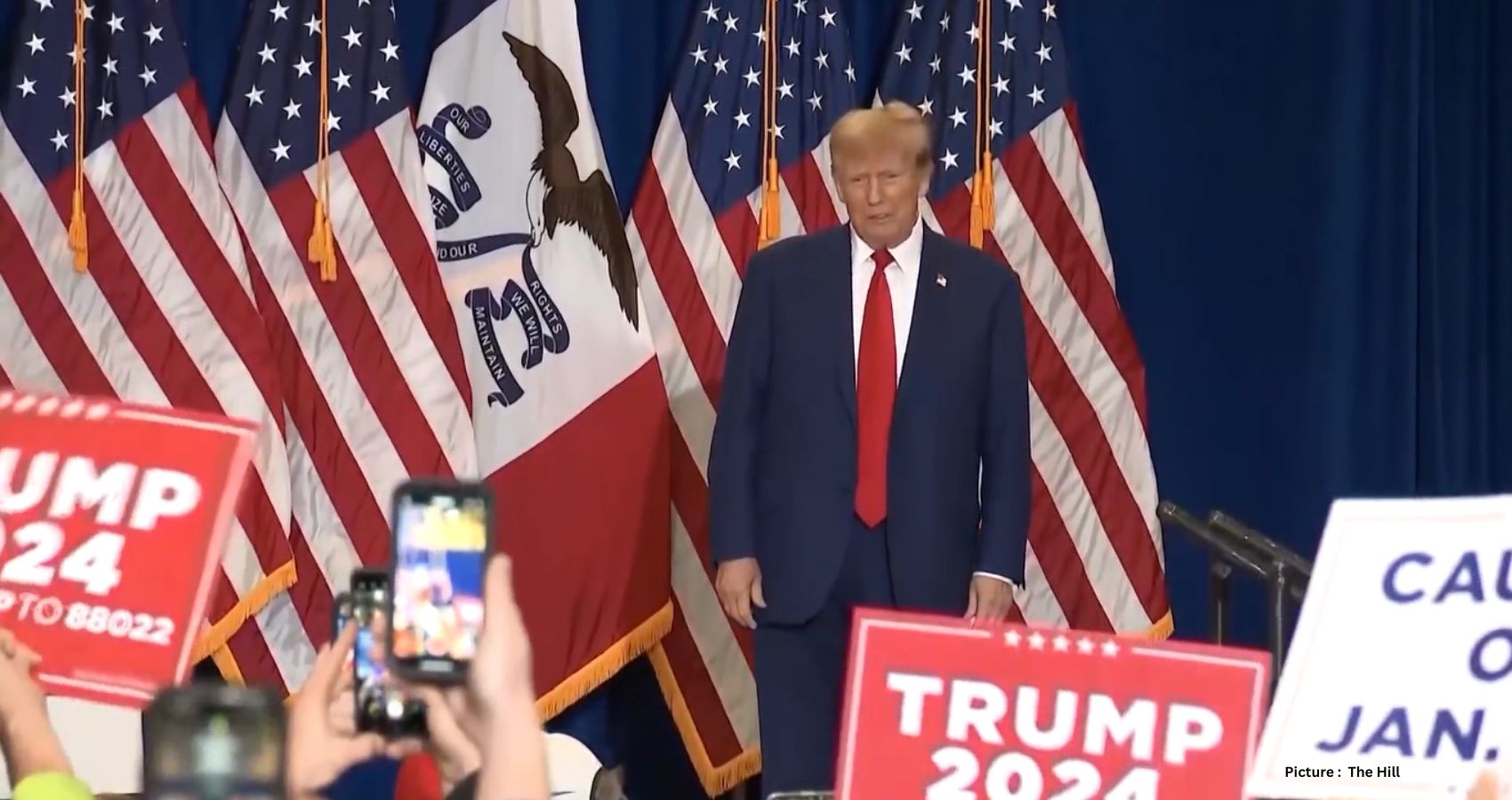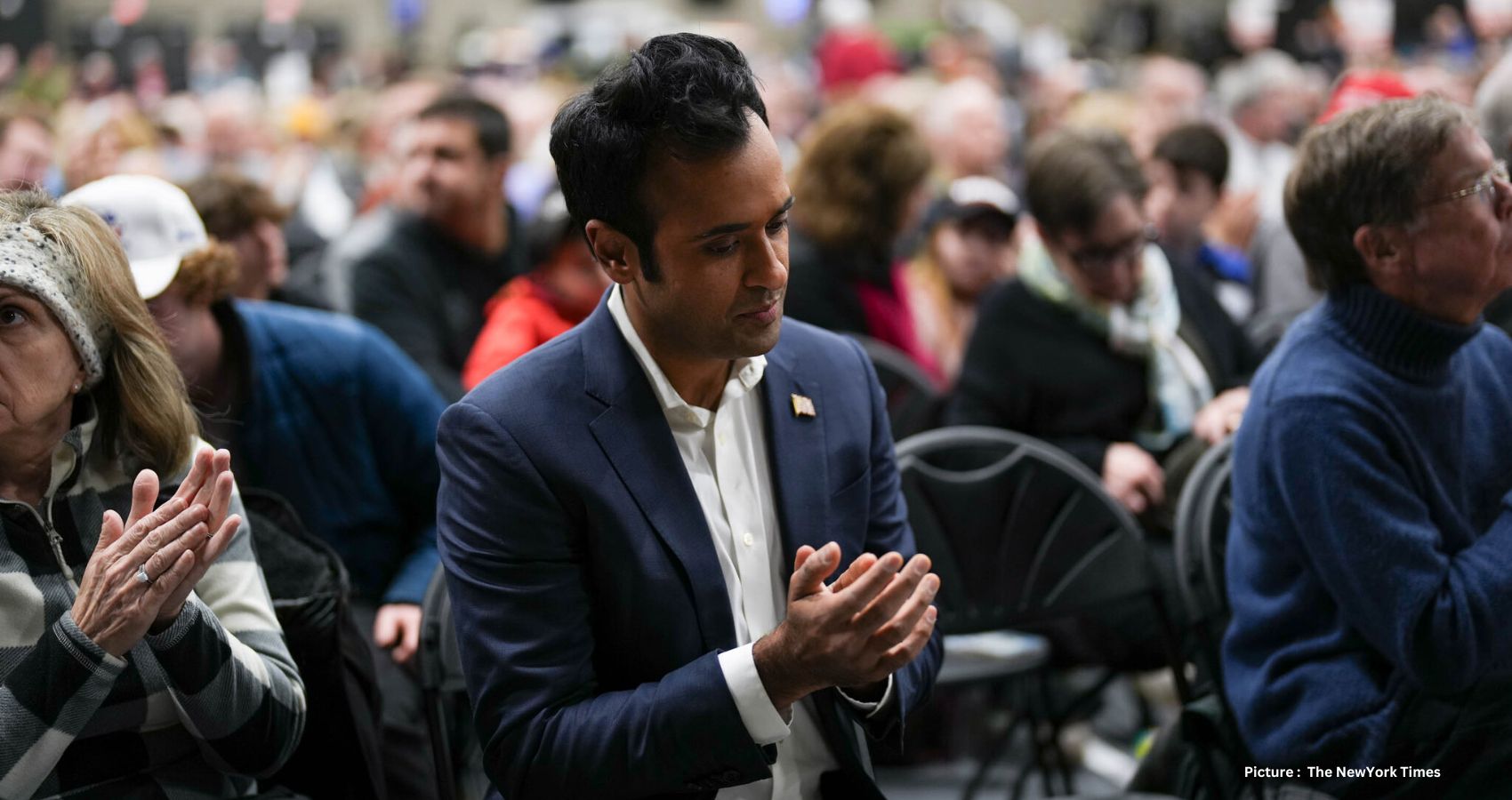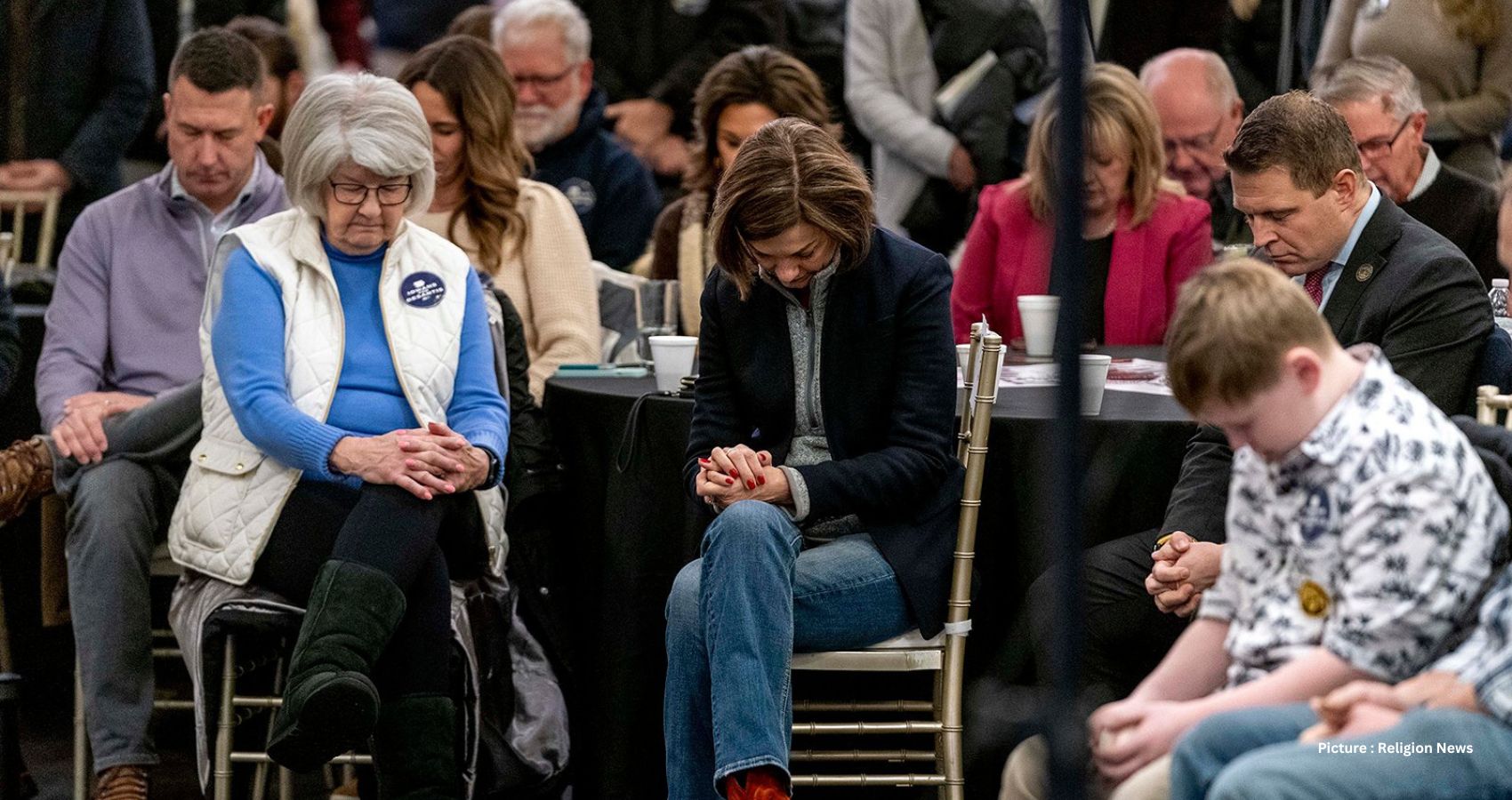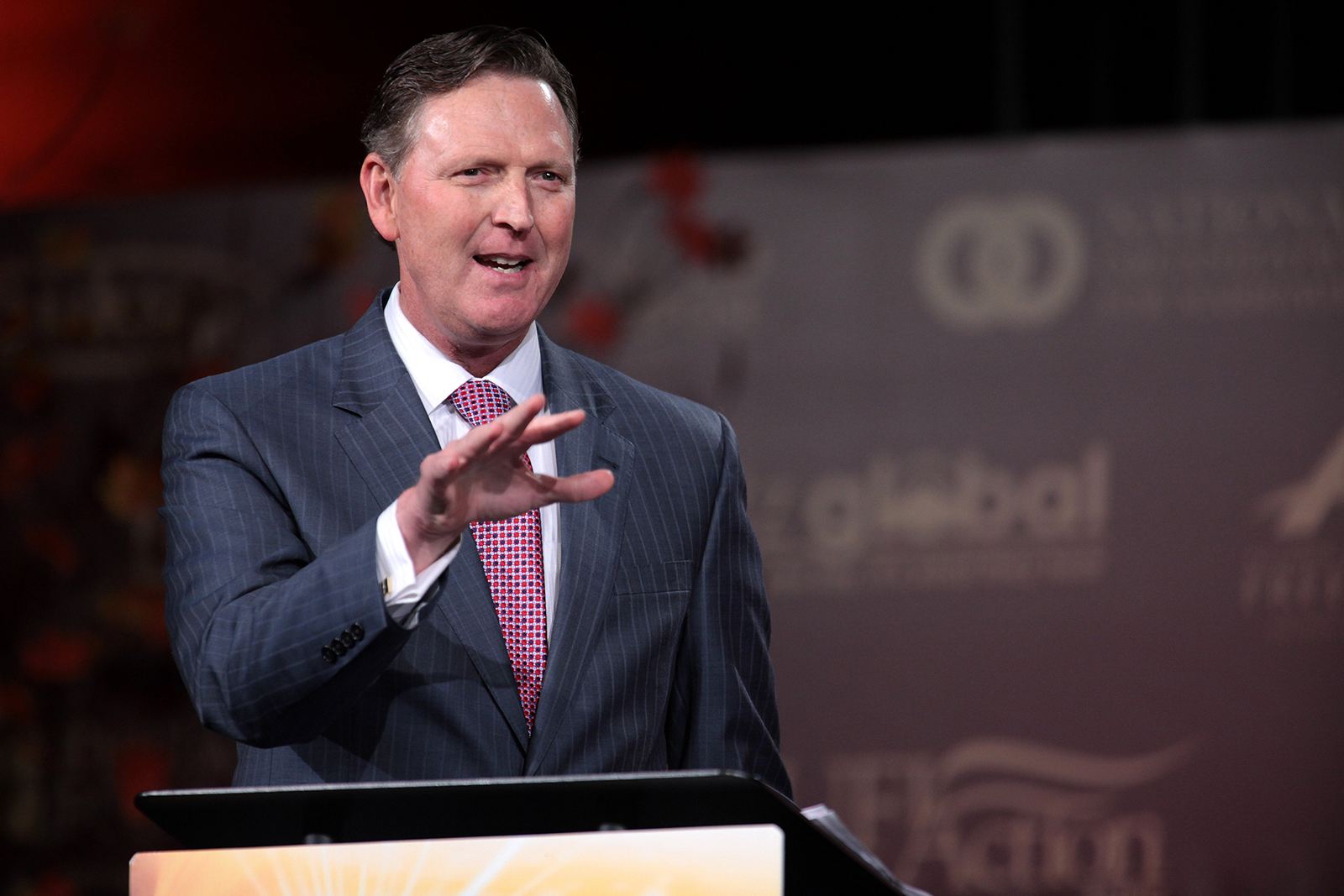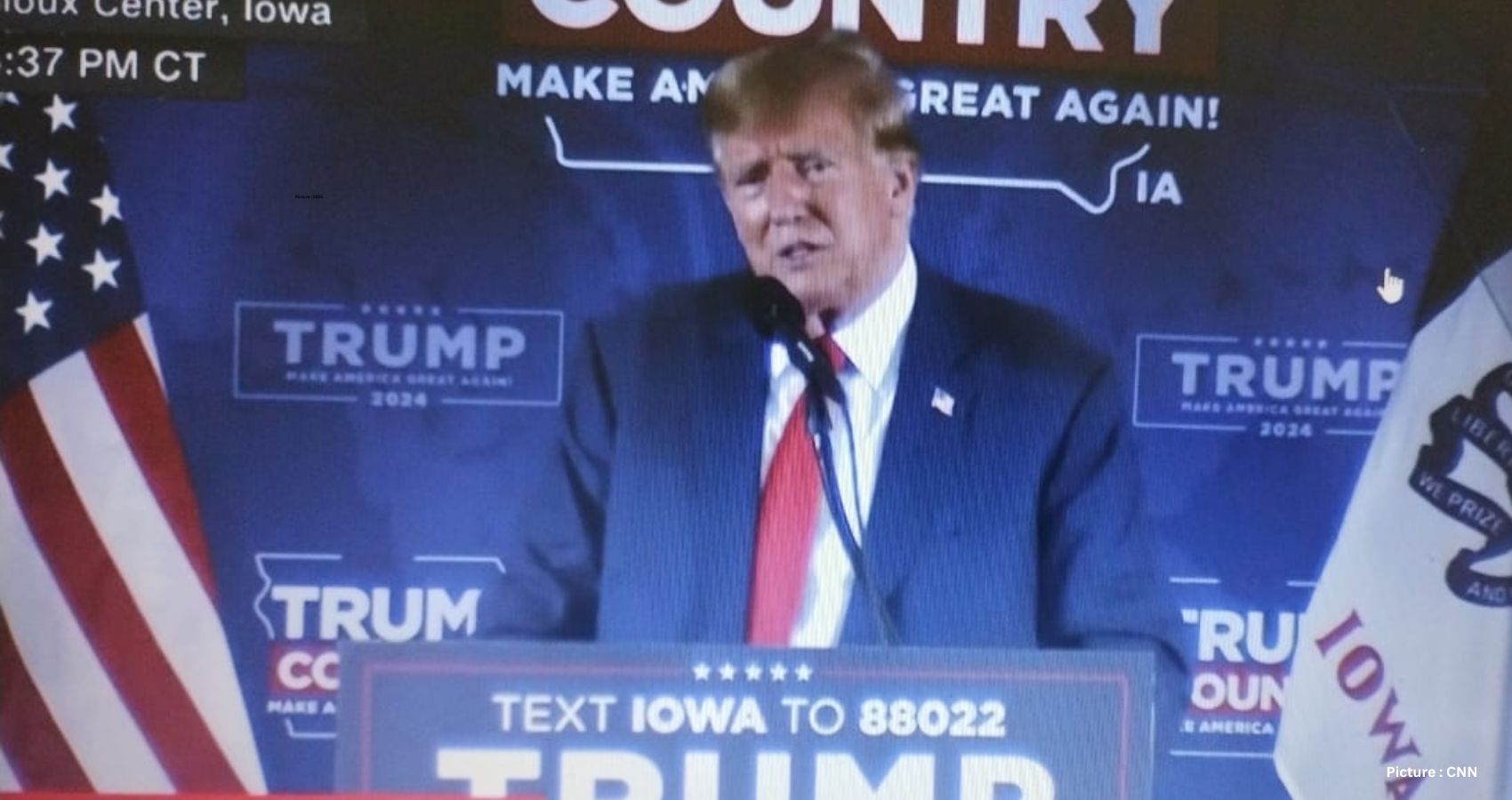Former President Trump was anticipated to secure a decisive victory in the Iowa caucuses, marking the initial significant trial of the 2024 Republican primary race, as reported by Decision Desk HQ.
In the lead-up to the Hawkeye State’s caucuses, Trump maintained a substantial lead in polling averages over his closest rival, with signs suggesting that he was garnering increased support and drawing backing from evangelical Iowans. Expressing confidence in his success, Trump declared at a rally in the weeks leading to the caucuses, “We’re going to win the Iowa caucuses and then we’re going to crush crooked Joe Biden next November.”
Fox News featured this statement in the introduction to a recent town hall broadcast with Trump, coinciding with a debate between rivals Nikki Haley and Ron DeSantis on CNN. Decision Desk HQ officially declared Trump the winner just before 9 p.m. Eastern, leaving the second-place position in suspense, with Haley and DeSantis in a tight race.
Despite DeSantis’ significant investment in Iowa and securing the endorsement of Gov. Kim Reynolds (R), his projected loss to Trump poses a substantial obstacle for his campaign going forward.
“The people of Iowa sent a clear message tonight: Donald Trump will be the next Republican nominee for President. It’s now time to make him the next President of the United States,” asserted Alex Pfeiffer, communications director for the pro-Trump super PAC Make America Great Again Inc., following the Iowa race announcement.
With the focus now shifting to New Hampshire, which is set to host its first-in-the-nation Republican primary on Jan. 23, attention is drawn to the competition between Trump and Haley. Despite her Iowa setback, Haley has been narrowing the gap in New Hampshire, although Trump maintains a considerable lead in the state.
Political strategists posit that a dual triumph for Trump in both Iowa and New Hampshire could be a game-changer for the rest of the election cycle, making it exceedingly challenging for another GOP candidate to catch up before the general election.
In Trump’s 2016 presidential bid, he faced a setback in Iowa, losing to then-candidate Sen. Ted Cruz (R-Texas), but subsequently rebounded by winning in New Hampshire and securing the nomination. In the current race, Trump positions himself as a de facto incumbent, striving to return to the White House. However, he confronts significant hurdles, including multiple criminal indictments and ongoing legal battles nationwide.
Trump’s eligibility to run is further complicated by efforts in some states to remove him from the ballot. Last month, Colorado’s Supreme Court ruled that Trump is disqualified from the race under the 14th Amendment’s insurrection clause, citing his actions around Jan. 6, 2021. Similarly, Maine’s Secretary of State also disqualified Trump under the 14th Amendment.
Despite these legal challenges, Trump portrays them as politically motivated attacks, characterizing himself as the victim of a “witch hunt” as he seeks another term. Meanwhile, fellow Republican candidates find themselves in a delicate position as they strive to campaign against Trump without alienating his supporters, crucial for gaining ground in the race.
During a CNN debate in Iowa, both Haley and DeSantis voiced reservations about another Trump term but predominantly directed their criticism at each other. The unexpected withdrawal of former New Jersey Gov. Chris Christie from the race last week added an element of surprise. Although Christie used the opportunity to caution against another Trump presidency, he was inadvertently captured on a hot mic disparaging both Haley and DeSantis.
Trump, unfazed by speculation that Haley could benefit from Christie’s exit, dismissed concerns during his Fox News town hall, stating, “I have polls that show me leading by a tremendous amount in New Hampshire and a lot in Iowa. And nationwide, we’re leading by almost 60 points. So, I’m not exactly worried about it. I think we’re going to do very well in New Hampshire.”
As the primary spotlight shifts to New Hampshire, the unfolding dynamics will reveal whether Trump can maintain his lead and solidify his position as the frontrunner in the Republican primary race.

